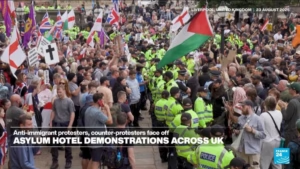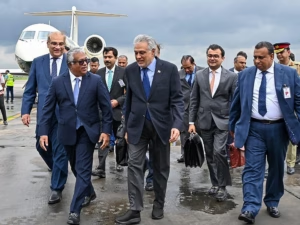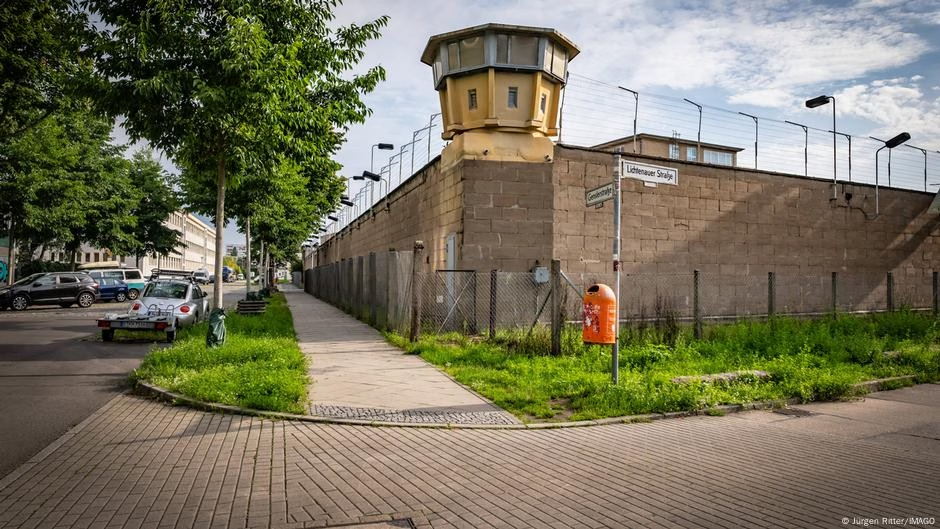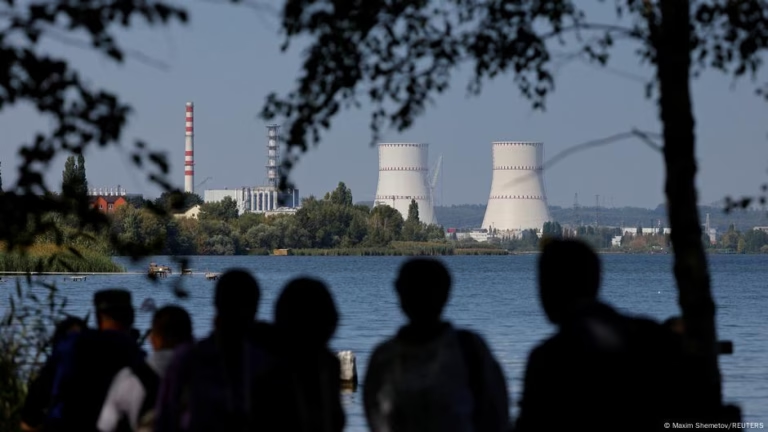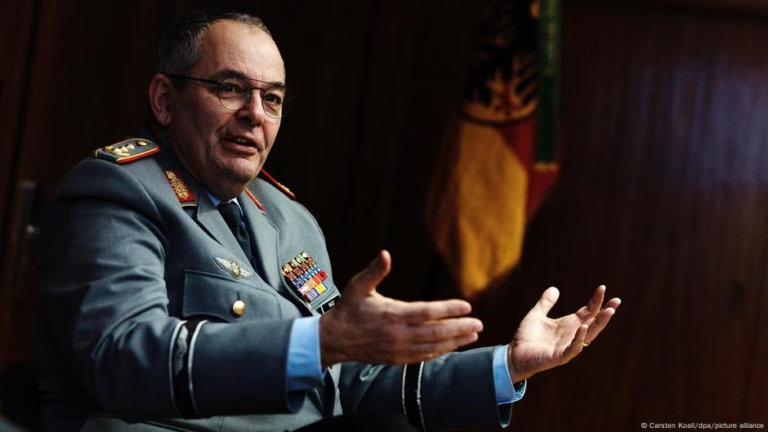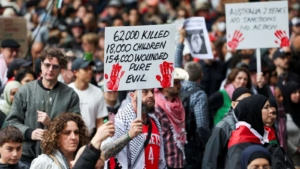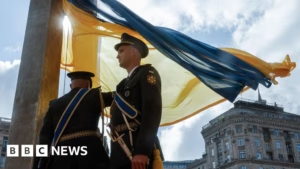< div data-tracking-name = “rich-text” data-tracking-skip = “true” >
Located in the heart of Berlin’s Spreebogen district is a well-kept lawn adorned with several young trees and three park benches. Every day thousands of people walk past this spot, mostly tourists from around the world or employees of the nearby Chancellery or parliament on their way to or from Berlin’s main railway station.
This open lot is where one of Germany’s most important memorials is set to be established. Since fall 2024, the site has been designated for the Memorial for the Remembrance of the Victims of Communist Dictatorship in Germany, which will honor the victims of the communist regime in Germany.
Until 1989, a border separated East and West Germany. In East Germany, the Soviet Occupation Zone (SBZ), which had existed since 1945, became the German Democratic Republic (GDR) on October 7, 1949.
GDR was an authoritarian regime that systematically persecuted dissidents and suppressed freedom of movement and expression until its collapse in the fall of 1989 and German reunification the following year. During the GDR era, more than 600 people lost their lives while attempting to flee to the West across the inner-German border or over the Berlin Wall.
Victims’ associations say memorial is ‘long overdue’
<span>There are now plans to commemorate this history. In September, the German parliament is expected to approve the necessary funding for the memorial as part of the 2026 federal budget during its meeting. This will pave the way for the launch of a design competition. </span>
<span>Erecting the memorial is long overdue, said Dieter Dombrowski, a 74-year-old East Berliner and chairman of the Union of Victims of Communist Tyranny. In 1974, he was sentenced by the Schwerin District Court in the GDR for 'illegal border crossing' and 'subversive activities.' He served 20 months of his sentence and was later able to leave for West Germany.</span>
<span>Dombrowski was exonerated in 1994. Reflecting on his upbringing in a Catholic family, Dombrowski remembers how his mother made a conscious effort to protect her children from the influence of communism. It was 'omnipresent in the GDR,' Dombrowshi told DW. 'In kindergarten, at school, at work, everywhere.'</span>
<span>Dombrowski was one of eight children in the family, six of whom were imprisoned at some point. Approximately 350,000 people ended up in prison in the GDR due to their opposition to the regime.</span>
<span>The memorial, said Dombrowski, will also commemorate those prisoners who have already passed away. 'Many people did not live to see the fall of the wall in 1989, but they desperately longed for it to happen.' He believes that the memorial will provide psychological support for all survivors and demonstrate that they were not alone.</span>
<span>The Bundestag approved the memorial back in 2019, but only now is the project finally getting the funds it needs to move forward.</span>
<span>We are the last in the former Eastern Bloc to erect a national memorial to this. That speaks for itself, said Dombrowski. He stressed that remembering the victims of the 'second German dictatorship' should not overshadow the 'special significance' of the first German dictatorship during the Nazi era. 'But communism always means dictatorship,' he added.</span>
<h2>Remembering a dictatorship</h2>
<span>There are over 900 commemorative sites, memorials, and museums in Germany, preserving the memory of the dictatorship in the Soviet Occupation Zone (SBZ) and the subsequent GDR established in 1949.</span>
<span>Many of these are local initiatives, but some are of national importance, like the Memorial Site Hohenschönhausen and the Memorial Site Cottbus Prison, which remember the prisons operated by the secret police of former East Germany, the Staatssicherheit (Stasi).</span>
<span>Once the budget is approved, the project should move forward quickly and the memorial will become a reality as soon as possible, according to Anna Kaminsky, the director of the Federal Foundation for the Study of the Communist Dictatorship in Germany.</span>
<span>She underscored the importance of the memorial to remember the past dictatorship, including the uprising in the GDR in June 1953 and the construction of the Berlin Wall in August 1961, which created an Iron Curtain between East and West. She believes that explicit remembrance is 'urgently needed today to make the differences between dictatorship and democracy clear.'</span>
<span>Victims' associations would prefer a memorial site where state ceremonies are held annually or where wreaths are placed occasionally. Dombrowski said he favors an 'interactive memorial' established online that offers additional features through QR codes. This way, the place could also become a 'learning hub' for school classes, youth groups, or educational institutions. Then, it wouldn't just be a memorial but would contribute to broad civic education.</span>
